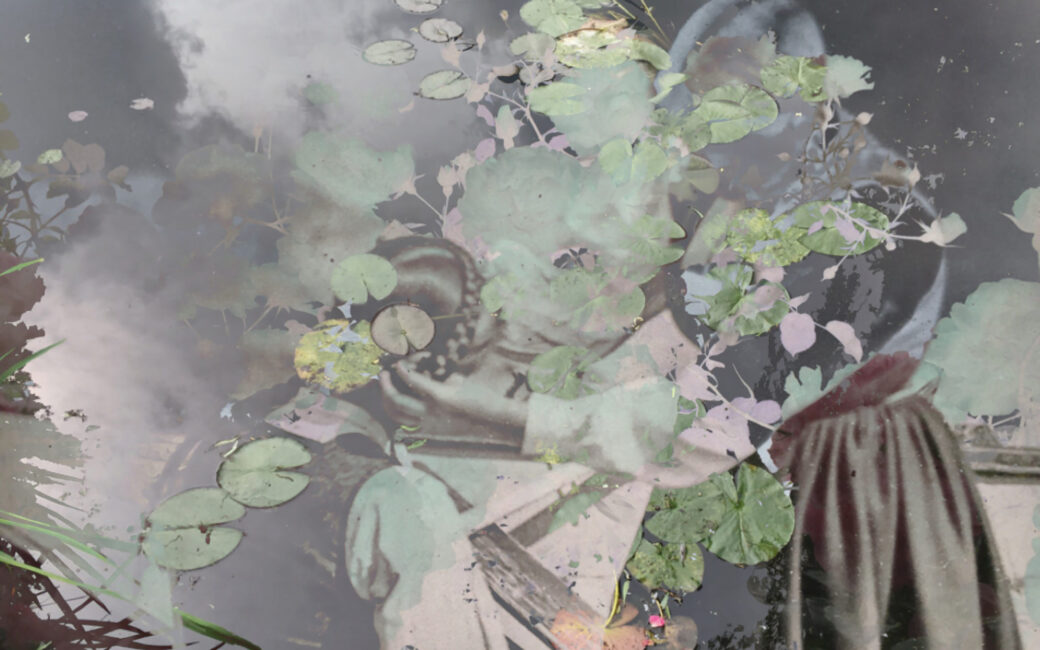As a kid, my Uncle Ron made a big impression on me. At the time, I lived with my family in Ghana where my father worked as a medical researcher. In the middle of our four-year stay, Uncle Ron joined us in West Africa as a Peace Corps volunteer. He taught in a small village, Anum, a few hours east of the capital, Accra, where we lived.
Curious about his life in Anum, I decided to spend my spring break with him shortly after I turned nine. My parents dropped us off by the side of Accra’s motorway and, thumbs out, we were soon picked up by a yellow Datsun that took us to the outskirts of Tema. An industrial port city, Tema was the inspiration for the Ghanaian pop hit, Tema Town Baby. From there, Uncle Ron and I hopped into the back of a Peugeot truck and then into a series of small tro-tros, local buses with long wooden benches for seats on an open platform behind the cab and colorful sayings on the sides such as “But Still, It Makes Me Laugh.” Along the way, friendly locals stared at my sun-bleached blonde hair and tried to touch it. I pulled a baseball cap down tighter on my head and buried myself in a copy of Who’s Who in Baseball.
In Anum, I spent a week with my uncle in his cinder block house overlooking Lake Akosombo. His school spooked me, with several closed-off shadowy buildings with large cobwebs where, long ago, European priests once lived. In keeping with the Peace Corps spirit of “do as the locals do,” I hung out with his houseboy who was three years older than me but half my size. Despite his small stature, he could outhaul me any day of the week as we carried fresh water daily about a mile from a well to my Uncle Ron’s house. For fun, I taught him to throw an American football. Meals made it harder to sustain living locally as I disliked the regular meal, fufu, a doughy sort of paste dipped into peanut sauce. Instead, I mostly ate cornflakes out of the box and mustard on bread. In the evening, while distant drums pounded from a village festival my Uncle Ron told me stories by kerosene lantern before I fell asleep.
In one story, on a hot day earlier that year, Uncle Ron had arrived home from teaching to find a line of army ants — biting creatures aggressive enough to devour a goat — marching from his mostly decorative bathtub, since there was usually no running water, and through the living room and out the front door. On the advice of the villagers, sweating in the equatorial heat, Uncle Ron built a blazing fire in the tub to conquer the marauding ants.
A decade and a half later, I reflected on this while submerged, hippo-like, in a bathtub in Poland. Somehow, my early interest in Peace Corps and my time in the African bush had led me to a small to post-Communist town called Walcz where I now lived and taught.
Unlike Uncle Ron’s house in Anum, at least my bathtub, a huge enamel battleship of a fixture, had running water and hot water at that. By October, as the daylight and temperatures dropped, the bathtub quickly became one of my favorite amenities. For one, the enormous size made it useful for washing clothes. Often, my clothes turned the water black because of the sooty polluted skies. In response, I quickly learned that standing in the tub and stomping clothes like a medieval peasant stomping grapes was a great way to get them clean.
For another, the heat in the school would not be turned on until some unspecified date in November, and the hot water provided a handy refuge. This was especially true on heatless weekends when the temperature hovered at freezing, rains blew in from the Baltic coast two hours to the north with a metronomic regularity, and artillery explosions from a nearby military base sounded an ominous backbeat.
On these weekends, I retreated to the tub and plotted my escape. Since the school director, an older man who had come up under the Communist system and had all the warmth of a statue of Lenin, had not given me a key, I was effectively locked at the end of one wing of the old neo-Gothic building inside my faculty apartment. With the school shuttered and the girls in the dormitory down the hall sent home, to leave the school on weekends I had to walk through long, dark halls lined with sconces used long ago to hold torches and then through a side door used by the caretaker and his family. Even worse, on returning I had to knock on the same door and disturb the family and their multitude of squawky chickens.
Communications with the outside world had also been a problem. I received invitations in the mail to Peace Corps get-togethers across Poland, but they typically arrived after the events took place. In a quick survey of Walcz, I also learned that the public phones only worked locally. In fact, my students informed me that the town switchboard had recently been torn out and that workers had found it stamped with a Nazi eagle from when the Germans had installed it.
I was stuck in mind and in fact. Reflecting on all this while submerged in the outgoing waters of the tub on another chilly, gloomy weekend, I realized that this Tema Town Baby needed to get his own key to the building, and soon.




